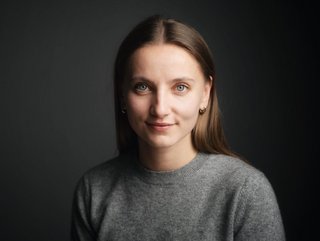
Alina Ganova, CEO and co-founder of Altos, to help individuals monitor their CO2 intake, and to ensure they’re surrounded by the correct air composition to fuel their brains. We spoke to Alina to discover more about this fascinating technology, and find out more about her entrepreneurial journey.
1. Could you start off by telling us about Altos?
Have you ever got stuck on a task for no apparent reason? Here’s a clue as to why: your brain lacks fuel for work. According to multiple studies, people’s cognitive performance depends directly on what air they breathe. So the more CO2 is in the air, the less productive we are in our thinking process. To overcome this, we launched Altos, the first personal accessory to ensure air composition is right for optimal cognitive performance.
2. Why did you choose a career in technology?
My background is in cognitive science and innovative technologies. I have always been mesmerised by how people interact with each other, with objects and spaces, and how different factors shape our behaviour and perceptions. When I was studying for my second Master’s degree, I chose: “Interactive Digital Systems” as my elective course, and it was my favourite subject. It was the first time I had worked with Arduino, and it felt like magic. It gave me a new perception of what could be done with hardware, and it took a special place in my heart.
3. What problems were you trying to solve by launching Altos?
With Altos, we are bridging the gap between personal well-being and the environment. I believe the people and the spaces they inhabit are inseparable. We must shape our routines considering our personal rhythms, and habits. Altos gives people a tool to explore what works best for them personally.
4. What issues did you face in your career before you started Altos?
I had been working in the corporate sector, and I remember feeling conditioned to work in a certain way, even when I felt unproductive or unwell. The pandemic changed a lot of things, but I believe that all people are different, and the future of a fulfilling lifestyle is personalised. This is what we are aiming for with the Altos vision.
5. How have you integrated your values and mission into your company structure?
Our mission is to connect the environment people are in with their personal health data. I believe that people and spaces are interconnected, and spaces we inhabit could encourage, or on the contrary, discourage activities, create new rituals and inspire individuals to try new things. Building a tool that could help to create this connection is very inspiring to me. I’m trying to share my passion about it with my team. We don’t have strict working hours because we believe that everyone has a unique personal schedule, but we still share milestones of work progress.
6. What is the most valuable lesson you've learned as the founder of your own company?
The team is most important! The right people in the right positions could make a product even bigger than initially intended. We are working on a direct-to-consumer product, so it is important that the people in the team also use it and our audience as well.
7. How has your experience as a founder impacted those around you?
The first time I brought the very first working Altos prototype home, my father inspected all of our rooms for environmental conditions and then went to test it with the neighbours. As a founder, I have received tremendous support from the community (our advisers, investors, partners), so I encourage everyone to do what they like to do and not be afraid of trying. It’s nice to expand the circle of support.
8. What’s the main lesson you’ve learned about hiring since? What traits do you look out for when bringing on new hires?
A kind heart, honesty, and curiosity (besides other obvious professional criteria). I also look for a love for the product itself! It is important and inspiring to be the target audience of the product you are building. For me personally, ownership is also important. I feel so grateful when people take responsibility for the things that they are working on.
9. What qualities do you possess that you think have contributed most to your success?
I’m polite, curious, and answer emails in a timely fashion. However, my first degree in cognitive science showed me how different we all are, how differently our brains are wired, and how important it is to listen to other people and be able to clearly communicate with others.
10. What is your advice for other female founders at the beginning of their entrepreneurial journeys?
I would suggest keeping focus on what is important, keeping it in the front of your mind, listening to other people, and trusting your instincts. People could be sharing their opinions, which is great, but it is up to you which path to take.
Also, we must all talk to each other and listen to what the other says. I believe that good conversation is an enormous source of inspiration and could bring you ideas that were, until this time, unthinkable. I recommend a fantastic book, “You're Not Listening: What You're Missing and Why It Matters.” It highlights more productive and intuitive forms of communication between people.






